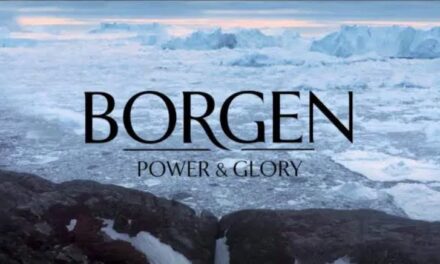As yet another week on British TV draws to a close I am moved to wonder what has happened to our television industry and my TV watching habits.
Over the last week I have found myself watching The X Factor (both live show and results show – Saturday and Sunday evenings taken care of) Young Apprentice, the last episode of Waterloo Road, Children in Need (concert and fundraising show) and a rag tag bunch of reality shows (I have managed to avoid I’m a Celebrity so far but it’s only a question of time).
I do have a youngster in the house, which inevitably affects the shows I watch, but it is noticeable that even when she isn’t around I find myself listlessly flicking through channels, looking for something that tickles my fancy.
In the light of Toby Miller’s blog this week and Geoff Lealand’s last, I find myself wondering (in a Carrie Bradshaw kind of way) – is it that TV is really dead or am I just watching it in a whole different way?
 I can fix my lack of engagement with scheduled TV onto three specific moments. The first was when The Wire took so long to come to these shores that I bought the series and devoured all five seasons in a concentrated orgy of viewing over the space of 3 months. The second was when Sky pulled Sky One away from Virgin viewers and with it we lost Lost, 24 and Nip/Tuck bang in the middle of seasons (and then we were taunted with advertising campaigns to ‘Get Jack Back’ and the like).
I can fix my lack of engagement with scheduled TV onto three specific moments. The first was when The Wire took so long to come to these shores that I bought the series and devoured all five seasons in a concentrated orgy of viewing over the space of 3 months. The second was when Sky pulled Sky One away from Virgin viewers and with it we lost Lost, 24 and Nip/Tuck bang in the middle of seasons (and then we were taunted with advertising campaigns to ‘Get Jack Back’ and the like).
And the third was when that same company recently struck a deal with HBO and exclusively screened the eagerly awaited Treme and Boardwalk Empire. My love affair with HBO was neatly thwarted and all hope was further dashed when I learned that Sky had bought up Mad Men too.
I now buy whole series or Tivo them (when they are shown on regular TV) and devour them one after the other. Watching one (or sometimes two) a night, recklessly squandering them in a greedy screening frenzy, too impatient to wait for each week’s new episode, all thoughts of watercooler chat pushed to the back of my mind. Nowadays my Monday morning conversations revolve around the latest film release, ironically now the only screenings that can be democratically shared with colleagues regardless of our chosen TV supplier.
Does this mean that TV is dead? Or that it is just dead to me?
Or is it that the TV that is available to me is now so reduced, despite the amount of channels that I have, that I am now forced to buy and consume series the way I used to buy books or films?
It is a real shame that nowadays I have to hunt the Internet to find when the new series of The Killing is scheduled to start on BBC4. When, despite setting a reminder on my phone, I still miss the first episode of Pan Am, so convinced am I that I have already missed the whole series (as everybody I know has already downloaded and watched it).
And hasn’t Toby got a point when he says that:
TV still dominates as a mode of production, distribution, and reception of the very genres that it helped create. Time-shifting and platform choice are versions of what has long been the dominant norm—watching material produced and bought by television networks.
Particularly when most of the films that I discuss over the metaphorical watercooler on a Monday morning are funded by the TV companies that I have fallen out of love with in the first place.
Kim Akass is a lecturer in Cutural and Contextual Studies (Film/TV) and Senior Research Fellow at the University of Hertfordshire. She has published widely on US TV, is co-founding editor of Critical Studies in Television, is co-editor (with Janet McCabe) of The Reading Contemporary TV series for I.B. Tauris. She is currently working on a book about mothers in the media for I.B. Tauris and is webmistress of CSTonline.





